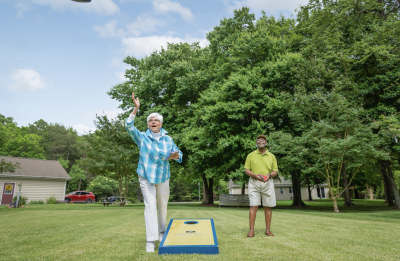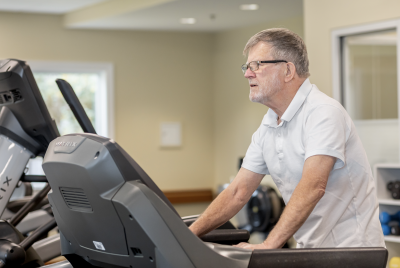Each year, millions of people worldwide muse on and make New Year’s resolutions — only to “fall off the wagon” weeks or months later. In fact, about 80% of New Year’s resolutions fail by the second week of February. If you count yourself among the many who tend to wander away from the path to your goals each year (and want to find your way back), this article is for you.
Why People Don’t Keep Their New Year’s Resolutions
 People of all stripes and ages can get off track with their yearly goals for a number of reasons. Some of the most common include making inherently faulty resolutions that:
People of all stripes and ages can get off track with their yearly goals for a number of reasons. Some of the most common include making inherently faulty resolutions that:
- Are so intimidating or out of character that you naturally resist making progress (are a bad fit for you)
- Are lacking in achievable, measurable steps or milestones
- Do not have an accompanying accountability system or structure for support
- Aren’t realistic (or advisable) in your current state of health, life situation, or environment
- Are motivated by social pressure (you don’t really want to achieve the goal, but think you should based on popular opinion)
Among seniors, for example, things like lack of social support and health or mobility constraints can be a real barrier to living their best lives. A senior resolving to engage in high-impact or intense exercise on a daily basis, for instance, might find achieving their goal difficult due to transportation barriers or physical limitations.
Taking the time to make realistic, well-considered resolutions with detailed milestones and supports for keeping them is certainly a solid approach to keeping New Year’s resolutions. However, if you’re not a fan of elaborate plans or finite objectives, there’s another solution.
 Consider Setting Intentions for the New Year Instead
Consider Setting Intentions for the New Year Instead
A popular alternative to resolutions is setting New Year’s intentions. Intentions focus more on a mindset, perspective, or journey than specific, quantifiable goals. For seniors, a shift from rigid resolutions to broader and more flexible aspirations can be particularly beneficial (and possibly less stressful, taxing, and boring, too). It accommodates the varying physical and lifestyle changes they may experience, focusing more on the journey and less on the destination.
For example, instead of spending an exact amount of time at the gym or fitness center every day or week, you could create an intention to simply incorporate more calorie-burning activities in your routine. This could mean walking some places instead of driving, taking up gardening, volunteering in a capacity that involves at least mild exertion (such as frequent standing), or enrolling in a Tai Chi or yoga class.
How to Keep Your New Year’s Resolutions or Intentions
Working toward your annual goals can be challenging, but it’s not impossible. For seniors as for other age groups, the following strategies for New Year intention-setting can be particularly effective:
- Examine your core values and desires. What kinds of objectives would be most meaningful for you to establish in your life? How do you want your life to change (and still feel like you are you)? This could be strengthening something you already do well, or overcoming a challenge for a result that’s inherently important to you.
- Make the methods for getting there actionable. Make a list of daily or weekly habits that will help you gain traction toward what you want to achieve, even if you don’t quantify them.
- Avoid the “same old, same old.” If you keep breaking the same resolutions year after year (and as we get older, these get easier to identify), it’s time to either choose new goals or rethink your approach.
- Make it enjoyable. There’s usually more than one way to accomplish a goal, and you’ll be far more likely to succeed if you choose methods and milestones that don’t feel like a chore. Get creative: think about tasks or activities you already enjoy (or at least don’t mind doing), and come up with ways to make them work in your favor.
- Come up with a theme. If you’re the kind of person who functions well with a unifying vision for the new year, see if your individual goals share any common elements or concepts. By focusing on those in a broad sense as the year progresses, you can act on intentions in your daily life in meaningful ways, both large and small. You may even want to embrace certain colors, symbols, or numbers during the year if they tie into or help to support the mindset you want to create.
 Suggestions for Attainable Goals in 2024
Suggestions for Attainable Goals in 2024
For seniors, appropriate New Year’s intentions could include:
- Staying active. Keep your body moving in safe, fun, doable ways.
- Learning new skills. Trying out new hobbies like painting, cooking, or learning a new language can keep the mind sharp and improve cognitive function.
- Being socially engaged. Setting a goal to spend more time with family, friends, or doing community activities to combat loneliness and promote emotional well-being.
- Managing health diligently. Goals could include getting regular health check-ups or maintaining a balanced diet, which are crucial for aging adults.
Reach Your Goals This Year With Rappahannock Westminster-Canterbury
Rappahannock Westminster-Canterbury is a continuing care community (also known as a life plan community) providing the highest quality living experience for discerning senior adults. Situated on 165 beautiful acres outside the village of Irvington in Virginia’s Northern Neck, RWC residents choose to live here for the independent and worry-free lifestyle afforded in a tranquil setting as well as a wide variety of mental health resources.
At RWC, you’re only a ten-minute drive from the picturesque Chesapeake Bay or the Rappahannock River as well as many other nature destinations. You’ll have access to fitness centers, a vibrant community, classes and social events, and health services tailored to your needs and preferences.
Contact us today for lunch and a tour of our beautiful campus. Alternatively, request a brochure to learn more about living your best life at RWC!
